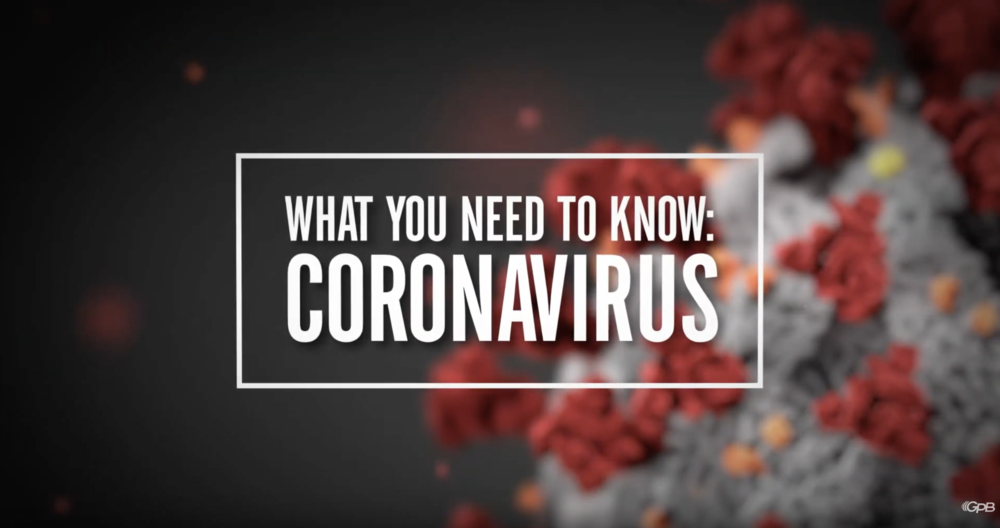Section Branding
Header Content
What You Need To Know: Keeping Small Town Newspapers Alive
Primary Content
Georgia Public Broadcasting’s new series What You Need To Know: Coronavirus provides succinct, fact-based information to help you get through the coronavirus pandemic with your health and sanity intact.
The news industry is being hit hard by the economic downturn triggered by the pandemic. One Georgia paper struggling is The Walton Tribune in Monroe. It’s been around since 1900, and prints twice a week. Since the start of the pandemic, the paper has had to cut salaries to avoid layoffs. Publisher and editor David Clemons tells GPB's Virginia Prescott he hopes to eventually return those salaries to normal.
EXCERPT FROM SEGMENT
We've been around, like you said, since 1900 and with the cutbacks of some of the other media organizations, it's really the only print newspaper you can get in a large part of our county now.
Covering Walton County like the sunshine.
That's right. That's right. An old, old slogan that goes back almost as long as the paper has.
How big is your staff now?
We have nine total across departments, from news to advertising to business office to circulation.
So what are some of the stories about the pandemic that the paper has been covering in recent weeks, unique to Walton County?
Sure. So we've really, in the beginning, really tried to just cover everything that we can to ensure people's questions and really solicit those on Facebook.
People wanted to know how this affects them. And so we've asked people what they want to know and tried to get answers from whether it's the Department of Public Health when they put out their numbers for the first time [or] when people would want to know what this means. We will try to get answers for them.
And as you know, that continues to be an ongoing issue, as numbers continue to come out, the data. People still wonder, "What does this mean?" The raw numbers are just are difficult to understand for any of us, and especially when you try to break it down for us from a big state level to the local areas.
But also, people just want to know, what does this mean for our schools and our kids? What does this mean for businesses? What businesses are open? What can open? And we just try to get those answers, try to work with any business partners, Chamber, the school systems, try to leverage those relationships that we've had for so many years to get information to people and just sort of be that place that people will turn to find out what's going on because I think now more than ever, people want to know. They want that dedicated source that they know they can turn to.
So what has this been like for you for the past couple of months, for you as a journalist and also as a newspaper editor and publisher to witness this in your community, a time of such uncertainty and a time when people are really scrambling for good factual information?
It has been like drinking from a firehose. I've never seen anything like this. And I think back to that week in mid-March, when everything just really came out so quickly when we went from, "Hey, this might be pretty bad" to "Hey, this is at our doorstep, and it is really bad."
And we went from "The Final Four is going to be here in a couple of weeks" to "We're not going to play in front of fans" to "It's not coming at all." I've never seen anything like that with just news breaking so fast and so significant and trying to make sense of it all, trying to get it out there to people. You know, it was just really stressful.
And I think we all as journalists, you have to try to go to a place of maybe putting yourself putting your feelings, putting your thoughts sort of aside and just sort of [getting] into the zone of [telling] this story, make it make sense for people, and then I'll deal with my own thoughts about this later.
I've seen a lot of stories of people kind of talking about sort of breaking down weeks later just because of the weight of this, the economic anxieties of it. It's been a very stressful time. But at the same time, it's been rewarding. And that, you know, it's nice that people vouch in your work and able to bring communities together as well.
Local papers, of course, have been getting hammered for decades economically. And this has actually been the last straw for some papers. Let's see, in rural Nevada, the Mesquite Local News, I think they've ceased publication in South Dakota. [A] newspaper there shut down operations after 140 years. So what does this mean for you? Is there any fear for the survival of your paper?
Well, we're very fortunate that our owner, Patrick Graham, just said that is not going to happen for us.
We're not going away and that's an attitude that I think has permeated our billman. We're not doing that. We're here. We're here for a purpose. And if we go out, we're going out kicking and screaming. We don't want to go anywhere and we feel like it's worth the support of the community.


